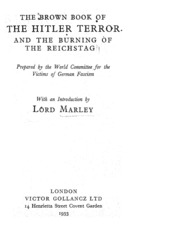- cross-posted to:
- [email protected]
- cross-posted to:
- [email protected]
Paraphrasing a 1932 article from the Deutsche Führerbriefe, a private bulletin by the Union of German Industry:
The problem of consolidating the capitalist régime in post‐war Germany is governed by the fact that the leading section, that is, the capitalists controlling industry, has become too small to maintain its rule alone. Unless recourse is to be had to the extremely dangerous weapon of purely military force, it is necessary for it to link itself with sections which do not belong to it from a social standpoint, but which can render it the essential service of anchoring its rule among the people, and thereby becoming its special or last defender.
This last or ‘outermost’ defender of bourgeois rule, in the first period after the war, was Social Democracy. [Fascism] has to succeed Social Democracy in providing a mass support for capitalist rule in Germany[.] Social Democracy had a special qualification for this task, which up to the present [Fascism] lacks[.]
Thanks to its character as the original party of the workers, Social Democracy […] also had the much more valuable and permanent advantage of control over organized labor, and by paralyzing its revolutionary energies chained it firmly to the capitalist State[.]
The process of this transition […] has to pass through the acutely dangerous stage, when, with the wiping out of these gains, the mechanism for the creation of divisions in the working class which depended on them also ceases to function, the working class moves in the direction of Communism, and the capitalist rule approaches the emergency stage of military dictatorship[.] The only safeguard from this acute stage is if the division and holding back of the working class, which the former mechanism can no longer adequately maintain, is carried out by other and more direct methods. In this lie the positive opportunities and tasks of [Fascism].
[…]
If [Fascism] succeeds in bringing the trade unions into a social policy of constraint […] then [it] would become the bearer of one of the functions essential to the future of capitalist rule, and must necessarily find its place in the State and social system. The danger of a State capitalist or even socialistic development […] will in fact be avoided precisely by these means[.] There is no third course between a reconsolidation of capitalist rule and the Communist revolution.
(Emphasis added.)



I think the last sentence is prescient as well, and it’s something that every liberal-flavored ideology completely misses. There is no middle ground between capitalism and communism. Policies trying to mix “the best of socialism and capitalism” are inherently unstable and will always give way to the class necessities of either the bourgeoisie or the proletariat.